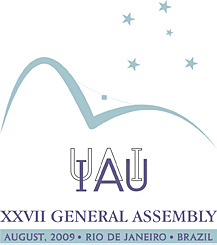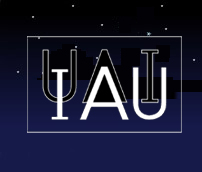Special Session 1 IAU General Assembly, Rio de Janeiro, Aug 3rd-6th, 2009

IR and sub-mm spectroscopy: a new tool for studying stellar evolution
will take place as a Special Session of the IAU General Assembly 2009
Infrared astronomy has come into its own over the last decade. Based on mature detector technology and sophisticated instrumentation it is contributing exciting science in many fields of astrophysics. Stellar evolution is a field that has long been dominated by ultraviolet and optical work but one that has benefited from a strongly increasing contribution from the infrared (IR) and sub-millimeter (sub-mm) domains. In particular, spectroscopy in these domains holds the promise to enable important advances through quantitative analysis of individual stars and stellar systems, and extending them to the earlier, dusty phases. All facets of stellar evolution, from star formation to advanced stages of stellar evolution will be impacted by the higher sensitivity and fidelity of the new spectral observations. The analysis of spectral lines leads to the determination of physical parameters of stars and their environments, including the determination of densities, effective temperatures, chemical composition, velocity flows, magnetic fields and excitation mechanisms.
This conference occurs at a particularly advantageous time for the transfer of knowledge in IR and sub-mm spectroscopy from mission to mission. Certain space missions have produced a wealth of data - Spitzer will have completed its cryogenic mission and entered the "warm" phase, while AKARI has ended operations after completing an all-sky survey. Others will either be presenting early results (Herschel) or making advanced preparations to launch (SOFIA, JWST). New ground-based facilities will have matured to be able to present results of unprecedented quality.
This Special Session aims to foster collaboration between various fields and bring together experts from theoretical and observational astrophysics, instrumentation and laboratory spectroscopy. In combination, these fields hold the key for the scientific success of the current and planned facilities. New observations will foster new thinking about old problems and will no doubt lead to transformative thinking for stellar evolution.
For more information contact: Glenn M. Wahlgren
Latest News
- The final program of the session is available now.
- Registration for the meeting is through the IAU General Assembly and their registration server.


